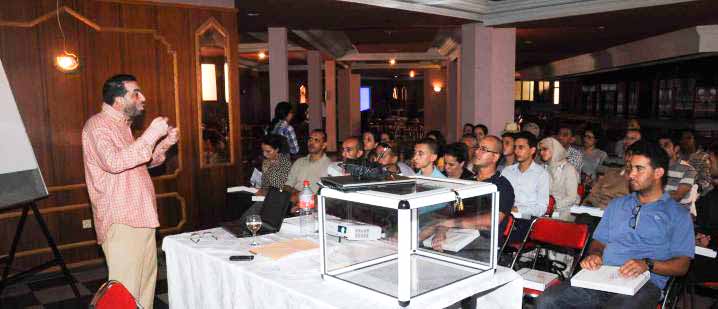2015 Election observation: Training sessions for national observers
The Special Commission for the Accreditation of Election Observers holds from the 22nd of July to the 4th of August 2015, in Harhoura (South of Rabat), a series of five training sessions for the national observers appointed by bodies accredited by virtue of Law # 30.11 on the terms and conditions independent and impartial election observation.
Speaking at the opening session, CNDH Chairman Driss El Yazami said that Morocco is one of the few countries that have put independent and impartial election observation in their constitutions. This is a strategic choice, he explained, which reflects the importance the Moroccan legislator gives to independent election observation as a tool and means to promote citizenship and strengthen public confidence in the electoral process.
Chaired by the National Human Rights Council (CNDH), the special accreditation commission aims through these sessions to train accredited observers and equip them with necessary tools and knowledge to best monitor the 2015 upcoming elections. Indeed, these training sessions (two-days each) aim to enhance the participants’ experiences and skills in independent and impartial election observation. It specifically aims to provide participants with the necessary legal and technical knowledge (international standards, related constitutional and national legislative provisions, ethics of election observation, etc.) and the methods and techniques to use for the independent and impartial election observation.
National experts and experts from the European Union, the National Democratic Institute and Gender Concerns International will train some 1250 observers in total, enhance their professionalism and thus improve the quality of election observation, through theory, role playing and case studies of election observation missions. The campaign will also help participants build strong capacities in reporting and giving legal interpretation to what they may observe during their missions.























